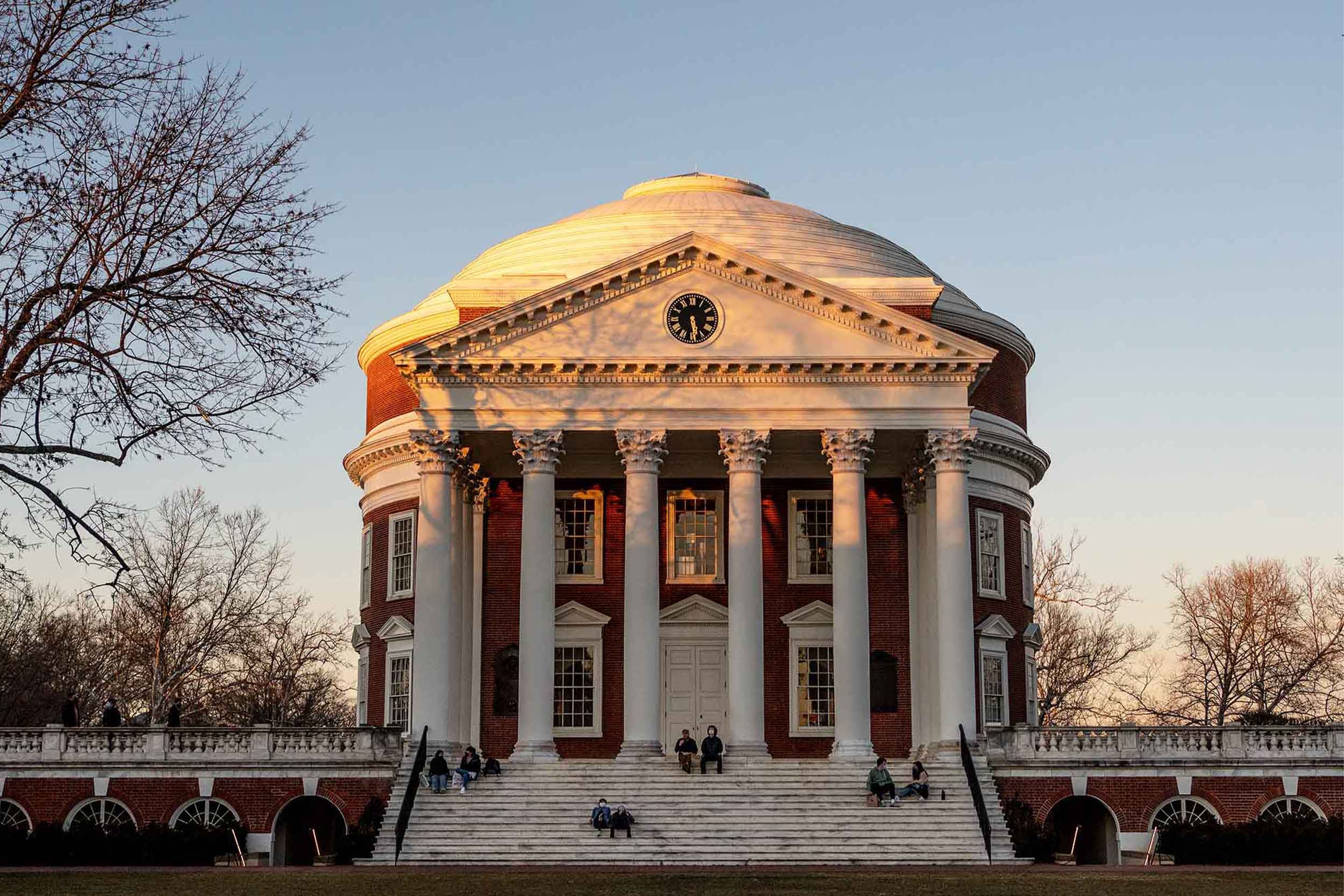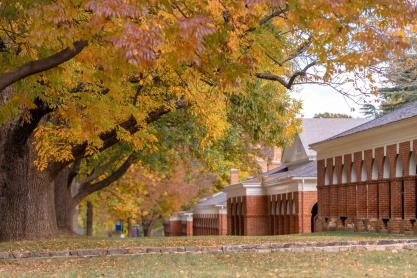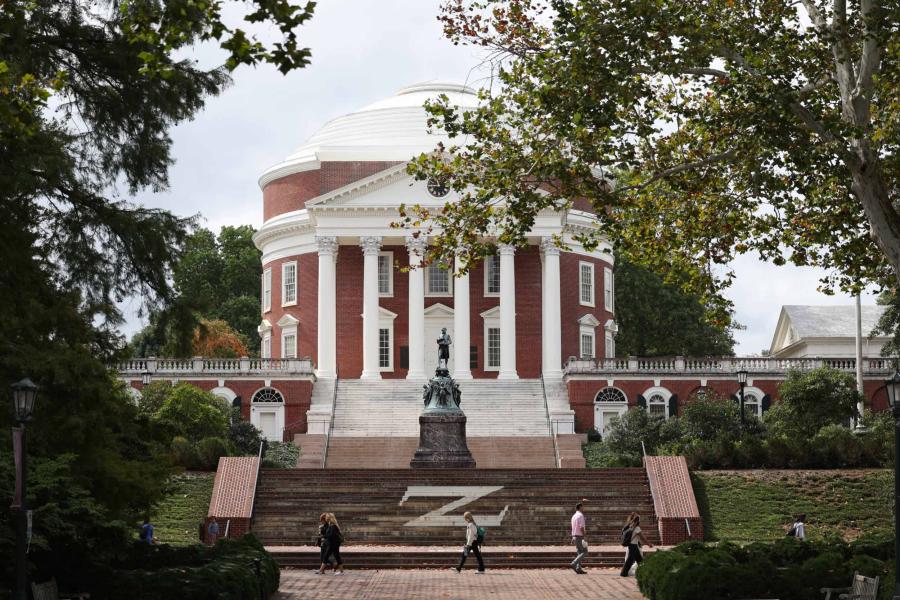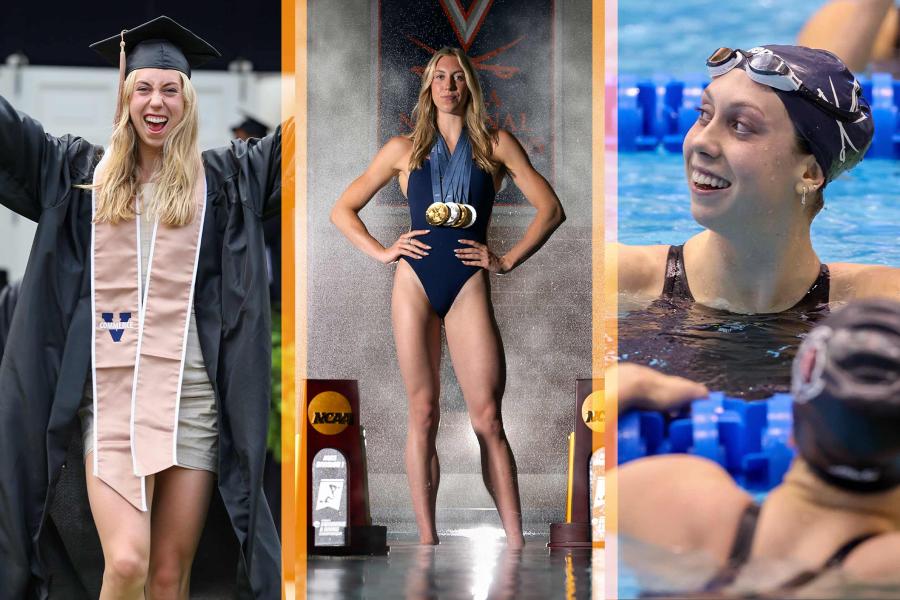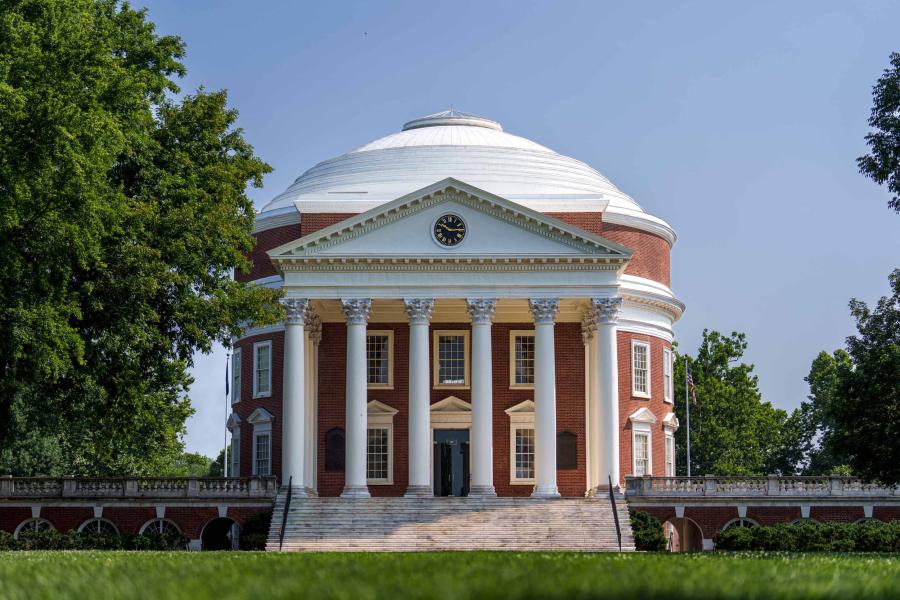Building on a series of academic programs offered during the fall semester, the University of Virginia is creating more than a dozen new courses, seminars and discussions to help students, faculty and members of the surrounding community better understand the conflict in the Middle East, as the war between Israel and Hamas pushes past the 100-day mark and threatens to draw in other adversaries.
The programming will begin at the end of January and stretch into the spring, and will encompass a range of experts and viewpoints, including everything from academic lectures to a time for students to ask questions of each other and to share perspectives.
“As we begin a new semester, I am grateful to our faculty members and others who continue to create academic programs related to current events for the UVA community,” Executive Vice President and Provost Ian Baucom said. “We have much to learn about the world from those with academic expertise and those with lived experience. We recognize that the ongoing war in the Middle East affects members of the UVA community in different ways, and providing opportunities to learn from and support one another is one of the most important things we can do as an educational institution.”
The sessions, a mix of in-person and online, are scheduled to begin Jan. 30 with a student dinner and moderated discussion hosted by UVA’s Karsh Institute of Democracy. Students will have open conversations, facilitated by faculty members, to share their thoughts and learn about others’ points of view, organizers said. Students will have several other options to meet over lunch or dinner to discuss the ongoing crisis and the historical reasons behind the conflict.
“Educational environments are among the best spaces to take on challenging topics,” Cedric Bernard Rucker, interim dean of students, said. “UVA students are diverse in their perspectives, identities and ideologies. They have the agency and the bandwidth for taking creative approaches and generating interest in complex issues. This creates an excellent arena for programs and events that foster dialogue across differences.”
Other programming is scheduled to include:
- An online panel discussion with journalists covering the conflict.
- A presentation from Israeli and Palestinian families who have lost loved ones in the ongoing conflict.
- Workshops on effective and constructive dialogue.
“The goal of these programs is to foster civil, empathetic and informed dialogue,” Baucom said. “Sustaining an environment that supports this is something we are called to do as a place that is guided by our collective pursuit of knowledge and understanding.”
For information on the latest programming and to learn about future events, visit the Provost’s Office website on current events and academic programs.
